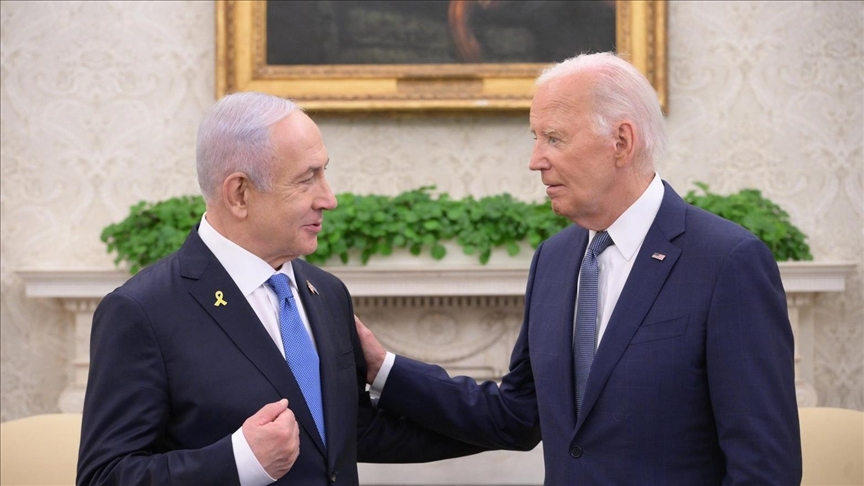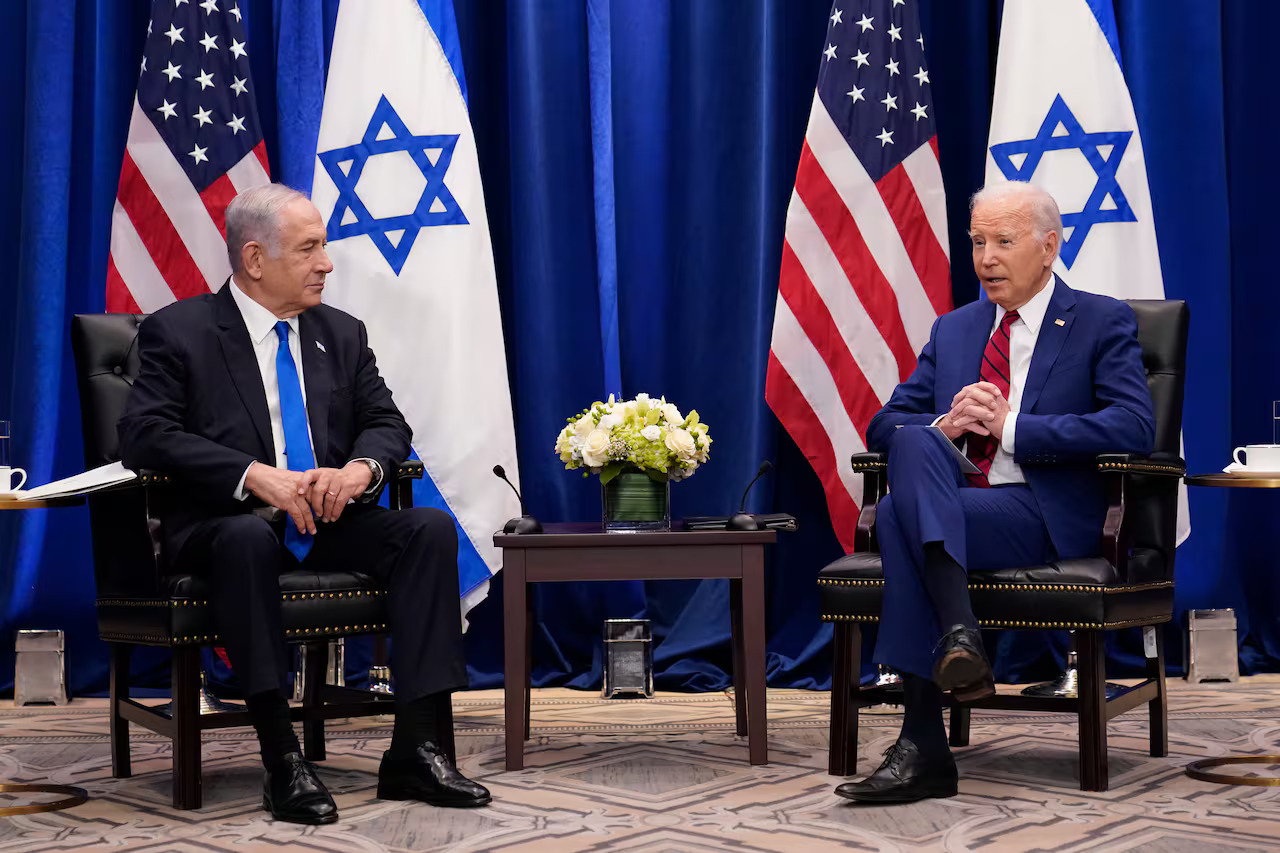Israeli Prime Minister Benjamin Netanyahu and U.S. President Joe Biden discussed efforts on Sunday to secure a ceasefire and a hostage release deal in the ongoing Israel-Hamas conflict. This development marks an intensified push to finalize an agreement before Donald Trump’s inauguration next week.
Negotiations mediated over the past year by the United States, Egypt, and Qatar have repeatedly stalled, even when a deal seemed imminent. However, in recent days, U.S. officials have expressed renewed optimism about reaching an agreement.
Sunday’s phone call between Biden and Netanyahu coincided with high-level talks in Doha, the Qatari capital. David Barnea, the head of Israel’s Mossad foreign intelligence agency, and Brett McGurk, Biden’s top Middle East adviser, were present in Doha.
Netanyahu’s office confirmed Barnea’s participation, signaling the involvement of senior Israeli officials who must approve any agreement.
Biden’s national security adviser, Jake Sullivan, told that McGurk was finalizing the details of a proposal for both parties. However, Sullivan refrained from predicting whether a deal could be reached by Jan. 20, Trump’s inauguration day.
“We are very, very close,” Sullivan said. “Yet being very close still means we’re far because until you actually get across the finish line, we’re not there.”
Both the White House and Netanyahu’s office confirmed the call between the two leaders, though they did not provide specific details.
Since the conflict began, only one brief ceasefire has been achieved, early in the fighting. U.S. Secretary of State Antony Blinken expressed hope this week for a deal to be finalized before diplomatic responsibilities shift to the Trump administration, describing the situation as “very close.”

Israeli Prime Minister Benjamin Netanyahu Holds Talk With Joe Biden
Currently, discussions revolve around a phased ceasefire. Netanyahu has indicated support for an initial phase involving a partial hostage release in exchange for a halt in fighting lasting several weeks.
Hamas, however, has demanded a full Israeli troop withdrawal from Gaza, a territory heavily devastated by the conflict. Netanyahu, in turn, has maintained that Israel is committed to neutralizing Hamas’ combat capabilities.
Key sticking points in the negotiations include the selection of hostages to be freed in the initial phase, the Palestinian prisoners to be released, and the degree of Israeli troop withdrawal from Gaza’s population centers.
The conflict has had devastating consequences. According to Gaza’s Health Ministry, more than 46,000 Palestinians—primarily women and children—have been killed.
This count does not differentiate between civilians and fighters. The war began after Hamas’ October 7, 2023, attack, in which militants killed approximately 1,200 people and abducted around 250 others.
Families of the remaining 100 hostages in Gaza have urged Netanyahu to secure their release. On Saturday night, Israelis rallied in Tel Aviv, displaying photos of the hostages in a call for action.
In Gaza, hope for a ceasefire remains tempered by ongoing destruction. Much of the territory lies in ruins, with over 80% of its 2.3 million residents displaced.
“We hear that there are negotiations every day, but we see nothing,” said Mazen Hammad, a resident of Khan Younis in southern Gaza. “When we see it on the ground, then we believe that there is a truce.”











































